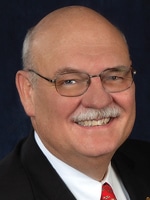November 2019—The LUVOIR telescope proposed this year by NASA, when it is launched into orbit, will outperform the Hubble Telescope 40-fold in ability to detect and visualize deep space objects in detail. But while dazzling in concept, the LUVOIR is still in development. Interestingly, at the genomic level, a similarly impressive advance in detection called mate pair sequencing has already progressed from research to clinical use in diagnosing cancer. With mate pair sequencing, a novel next-generation sequencing technique, Mayo Clinic is advancing the laboratory’s current capabilities for visualizing genetic rearrangements, thus increasing the diagnostic yield of testing for a variety of neoplasms.
Read More »November 2019
Transgender adult reference intervals taking shape
November 2019—Current sex-specific intervals can be used to interpret hematology results for transgender people using their affirmed gender, say authors of a study published earlier this year.
Read More »Personnel paradox and more: POC pitfalls
November 2019—Point-of-care testing makes up only about 10 percent of all laboratory testing but the aggravation factor and number of people involved far exceeds that, said Deborah A. Perry, MD, medical director of pathology at Methodist Hospital in Omaha, Neb., speaking at CAP19 and calling POC testing “a whole different world.”
Read More »NTRK fusion testing: ups, downs of four methods
November 2019—With two inhibitors approved by the FDA for the treatment of NTRK-fusion-positive solid tumors, the next step is to determine whom to test and how. If the efficacy of the compounds—larotrectinib and entrectinib—were the only thing to consider in implementing a testing algorithm, knowing whom to test would be easy.
Read More »In checklists, new approach for predictive markers
November 2019—In the 2019 edition of the CAP accreditation program checklists, released in September, requirements for predictive marker testing were revised to make them general so they apply to all types of such testing performed by immunohistochemistry and in situ hybridization, wherever possible.
Read More »HemoCell workcell approach brings efficiencies to coag
November 2019—Total laboratory automation solutions, with their integrated, comprehensive approach, have meshed well with the goals of many central labs. But with HemoCell, the first lab automation solution designed for hemostasis testing, Instrumentation Laboratory has shifted gears toward a more specialized solution: a workcell to improve quality and efficiency through process standardization. IL’s HemoCell integrates the company’s ACL Top 750 LAS testing systems, HemoHub Intelligent Data Manager, and HemosIL reagents with Thermo Fisher Scientific’s TCAutomation track. The company’s initial customer base for HemoCell has been in Europe, Asia (particularly China), and South America. Now IL hopes to bring the benefits of HemoCell to more U.S. labs.
Read More »LIS panel talks middleware, wish lists, workflow
November 2019—Middleware, result reporting workflow, consolidation of labs, and IT and laboratory labor were the center of discussion when CAP TODAY publisher Bob McGonnagle convened a panel in September to talk about lab information systems. Part one of the roundtable begins here; part two, on consolidation and labor, will be published in the December issue. On the panel were J. Mark Tuthill, MD, of Henry Ford Health System, Curt Johnson of Orchard Software, Wally Soufi of NovoPath, Michelle Del Guercio of Sunquest Information Systems, Nick Trentadue of Epic, Sepehr Seyedzadeh of Siemens Healthineers, and Tony Barresi of Beckman Coulter.
Read More »Put It on the Board
Illumina and Qiagen partner to deliver sequencing-based IVD tests
November 2019—Illumina announced on Oct. 7 a 15-year partnership intended to broaden the availability and use of NGS-based in vitro diagnostic kits, including companion diagnostics. The agreement grants Qiagen nonexclusive rights to develop and globally commercialize IVD kits to be used with Illumina’s MiSeq Dx and NextSeq 550Dx systems. The agreement also includes rights for expansion of the partnership on future Illumina diagnostic systems. Both partners are also exploring opportunities for Qiagen to develop and market companion diagnostics based on Illumina’s TruSight Oncology assays. Illumina and Qiagen will cooperate to commercialize a menu of clinically validated workflows that combine Qiagen’s proprietary content and bioinformatics solutions. The partnership will focus initially on commercializing oncology IVD kits and may expand in the future to include additional clinical diagnostic fields, such as cardiology, hereditary diseases, infectious diseases, and inflammatory and autoimmune diseases.
Q&A column
Q. Does a histotechnologist need a bachelor’s degree to run in situ hybridization? Read answer. Q. Does using an alcohol swab affect the results of an ethanol blood test? Read answer. Q. Is there a recommended procedure for or reference article about checking APTT reagent sensitivities (for the identification of factors VIII and IX) when changing lot numbers and reference range? Read answer.
Read More »From the President’s Desk: Small steps, big impact
November 2019—There is a saying about Washington that applies to our state capitals as well: If you are not at the table, you are on the table. I want to spend this column considering some of the ways in which the CAP helps its members get off the plate and pick up a fork. In other words, to become engaged politically.
Read More »Newsbytes
Francisco Partners to acquire Orchard Software
November 2019—Francisco Partners, a technology-focused private equity firm, announced Sept. 30 its intent to acquire Orchard Software. CAP TODAY publisher Bob McGonnagle, on Oct. 2, spoke with Orchard founder and CEO Rob Bush and with Billie Whitehurst, who will succeed Bush as CEO. Whitehurst most recently was senior vice president at Netsmart. Here is what they, and Curt Johnson and Kerry Foster, of Orchard, had to say about the acquisition.
Letters
November 2019—We read with interest the case described by Vormittag-Nocito, et al., of metastatic bladder adenocarcinoma with associated molecular pathology findings (September 2019). However, we would like to point out what we believe to be an important update related to the significance of FGFR3 alterations in urothelial carcinoma. When referring to TP53 and FGFR3 alterations in urothelial carcinoma, the authors write that “no targeted therapy or prognostic implications can be made about these mutations at this time.”
Read More »Clinical pathology selected abstracts
Intensive versus standard blood pressure control with cerebral white matter lesions
November 2019—The effect of intensive systolic blood pressure control on brain health is uncertain, despite its efficacy for reducing cardiovascular morbidity and mortality. However, hypertension is a primary risk factor for cerebral small vessel ischemic disease (SVID), especially in developing white matter lesions (WML). The pathogenesis of Alzheimer disease and related dementia is known to be associated with SVID and cognitive decline.
Anatomic pathology selected abstracts
Angiosarcoma of the liver: clinicopathologic features and morphologic patterns
November 2019—Angiosarcoma is a rare malignant neoplasm of the liver for which morphologic patterns have not been systematically studied. To provide more comprehensive data on morphologic patterns, the authors reviewed angiosarcomas that had been diagnosed between 1996 and 2016 at a large medical referral center. The major growth patterns were classified as sinusoidal (nonmass forming) or mass forming.
Molecular pathology selected abstracts
Tumor microbiome diversity and composition: influence on pancreatic cancer outcomes November 2019—Pancreatic adenocarcinoma has a dismal prognosis, with a high incidence of relapse and a median overall survival of 24 to 30 months. Only nine percent of patients are alive five years after surgery. Genome-wide mutational landscape studies to decipher the factors that contribute to long-term survival have been futile. Recent studies in patients with melanoma and lung cancer have shown that the gut microbiota can mediate tumor responses to chemotherapy and immunotherapy, influencing overall outcome.
Read More » CAP TODAY Pathology/Laboratory Medicine/Laboratory Management
CAP TODAY Pathology/Laboratory Medicine/Laboratory Management







